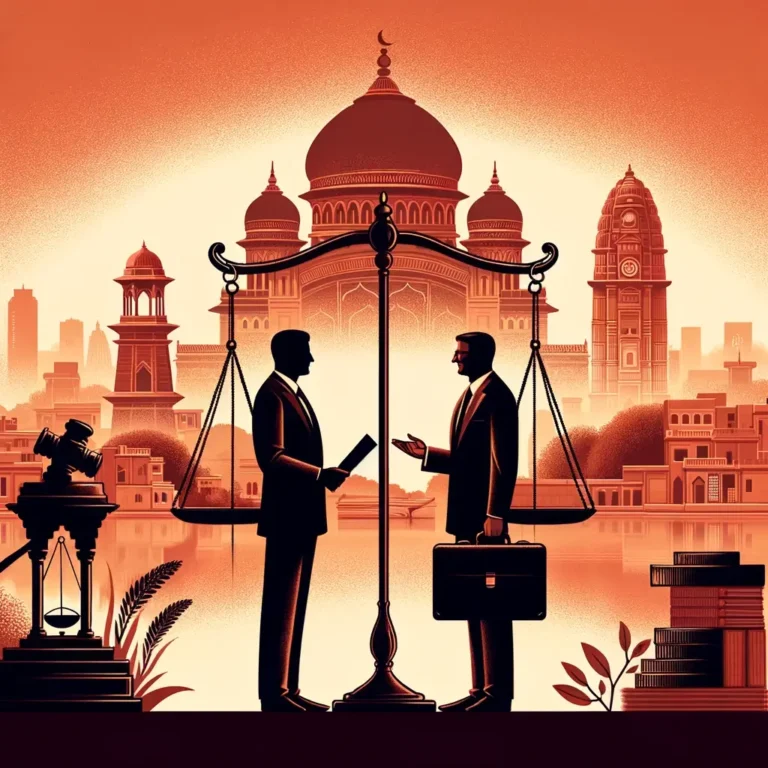This article talks about Inter-Caste Marriage Registration Process in Haryana
Introduction to Inter-Caste Marriage in Haryana
Inter-caste marriages in Haryana, a northern state of India, have become increasingly common, reflecting a gradual change in societal attitudes. These marriages, involving partners from different castes, symbolize a significant move towards social inclusivity and diversity. The state of Haryana, recognizing the importance of such unions, has established a clear registration process to legally validate and support inter-caste marriages.
Understanding the Legal Framework
Inter-caste marriage registration in Haryana is governed by the Special Marriage Act, 1954. This Act provides a legal framework for couples from different castes to marry and register their marriage, ensuring that it is legally recognized and protected under Indian law.
The Social Significance of Inter-Caste Marriages
Inter-caste marriages play a crucial role in breaking down caste barriers and promoting social harmony. They encourage a more progressive and inclusive society, reducing caste-based discrimination and fostering unity among diverse communities.
Inter-Caste Marriage Registration Process in Haryana
Step-by-Step Guide to the Registration Process
Step 1: Eligibility Criteria
Before initiating the registration process, it is essential to ensure that both partners meet the eligibility criteria:
- Both individuals should be of legal marriage age (21 years for males and 18 years for females).
- Neither partner should have a living spouse at the time of marriage.
- The couple should not fall within the degrees of prohibited relationship.
Step 2: Documentation Required
The following documents are necessary for the registration process:
- Age and address proof of both partners (Aadhaar card, passport, birth certificate, etc.).
- Passport-sized photographs.
- Affidavits declaring marital status, mental soundness, and non-relationship within prohibited degrees.
- In case of a divorcee or widow/widower, relevant documents must be provided.
Step 3: Filing the Application
The couple must file a notice of intended marriage at the Marriage Registrar’s office in the district where at least one of the partners has resided for a minimum of 30 days prior to filing the notice.
Online Application Facility
Haryana also offers an online facility for filing the marriage notice, making the process more convenient and accessible.
Step 4: Marriage Notice Period and Objections
After filing the notice, there is a mandatory 30-day period during which objections to the marriage can be raised. If no objections are received, the marriage can proceed.
Step 5: Solemnization and Registration
The marriage is solemnized and registered after the 30-day notice period, in the presence of three witnesses. The Marriage Certificate is issued, legally recognizing the marriage.
Benefits of Registering an Inter-Caste Marriage
Legal Recognition and Protection
Registration provides legal recognition to the marriage, ensuring the couple’s rights are protected under the law.
Access to Government Schemes
Registered inter-caste couples may be eligible for various government schemes as in Haryana Couples Get 2.5-3 Lakhs Rupees from Government and incentives designed to promote social harmony and inclusivity.
Challenges and Support Systems
Despite the progressive steps, inter-caste couples may face societal challenges. The government and various NGOs offer support systems, including counseling and legal aid, to help these couples navigate any difficulties.
The Role of Society and Government
The role of society and the government is pivotal in promoting acceptance and providing support to inter-caste couples, reinforcing the importance of social inclusivity.
You can also read:- Documentation required for court marriage
Conclusion: Embracing Social Change
The registration process for inter-caste marriages in Haryana is a reflection of India’s evolving social landscape. It not only provides legal sanctity to these unions but also promotes a more inclusive and progressive society. By understanding and following the registration process, couples can ensure their rights are safeguarded, contributing to the broader movement towards caste inclusivity and social harmony.
FAQs: Inter-Caste Marriage Registration Process in Haryana
- What is an inter-caste marriage?
- Inter-caste marriage refers to a marriage between two individuals belonging to different castes.
- Is inter-caste marriage legal in Haryana?
- Yes, inter-caste marriage is legal and protected under the Indian legal system, including in Haryana.
- Which law governs inter-caste marriage registration in Haryana?
- The Special Marriage Act, 1954, governs the registration of inter-caste marriages in Haryana.
- What are the basic requirements for registering an inter-caste marriage in Haryana?
- Both individuals must be of legal age (21 for males and 18 for females), must consent to the marriage, and must not be in a prohibited relationship.
- Do we need to provide proof of caste for registration?
- No, proof of caste is not required for registering an inter-caste marriage.
- What documents are needed for inter-caste marriage registration?
- Age proof, residence proof, affidavits stating marital status and intent to marry, passport size photos, and a conversion certificate if applicable.
- Where do we register our inter-caste marriage in Haryana?
- At the nearest Marriage Registrar’s office in the district where either partner resides.
- Is there a waiting period for inter-caste marriage registration?
- Yes, there is a 30-day notice period after filing the intention to marry.
- Can we marry immediately after submitting the notice?
- No, you must wait for the 30-day notice period to elapse.
- What if someone objects to our marriage during the notice period?
- The Marriage Officer will investigate the objection. If it’s invalid, the marriage can proceed; if valid, legal advice may be needed.
- How long does the registration process take?
- After the 30-day notice period, the process typically takes a few days to a few weeks.
- Are witnesses required for inter-caste marriage registration?
- Yes, three witnesses are required at the time of marriage registration.
- What if we face social issues due to our inter-caste marriage?
- Seek support from family, friends, or organizations that support inter-caste marriages.
- Does the Haryana government provide any incentives for inter-caste marriage?
- Yes, the government often provides financial incentives and other benefits for registered inter-caste marriages.
- How do we apply for government schemes for inter-caste marriage?
- Apply through the respective government portal or office with your marriage certificate and other required documents.
- Can we register our marriage online in Haryana?
- The initial process can start online, but physical presence is required for the final steps.
- What if one partner is from a different state?
- You can still register in Haryana if at least one partner resides there.
- Is a religious ceremony required for registration?
- No, a religious ceremony is not required for the legal registration of an inter-caste marriage.
- What is the cost of registering an inter-caste marriage in Haryana?
- The cost is nominal, usually a small registration fee, but it can vary.
- What if we miss the 30-day notice period?
- You will have to re-file the notice of intended marriage.
- Is a conversion certificate mandatory for inter-caste marriages?
- It’s only required if one of the partners has converted to another religion.
- Can a foreign national enter into an inter-caste marriage in Haryana?
- Yes, but additional documentation like a valid passport and visa is required.
- What is the validity of an inter-caste marriage certificate?
- The marriage certificate is valid indefinitely.
- Can we have a court marriage instead of a traditional one?
- Yes, a court marriage under the Special Marriage Act is a common practice for inter-caste marriages.
- Are same-sex inter-caste marriages recognized in Haryana?
- Same-sex marriage legality in India is a complex issue and varies; legal advice is recommended.
- What if we already had a religious ceremony?
- You can still register your marriage under the Special Marriage Act for legal recognition.
- What are the consequences of not registering an inter-caste marriage?
- Unregistered marriages may face legal challenges in matters like inheritance, child custody, and spousal rights.
- Can we change our caste after an inter-caste marriage?
- Legally, caste does not change after marriage, though societal perceptions may vary.
- Is legal advice necessary for inter-caste marriage registration?
- It’s not mandatory but recommended if you face legal complexities.
- What should we do if we face bureaucratic delays in registration?
- You can seek assistance from legal advisors or escalate the matter within the department.
















